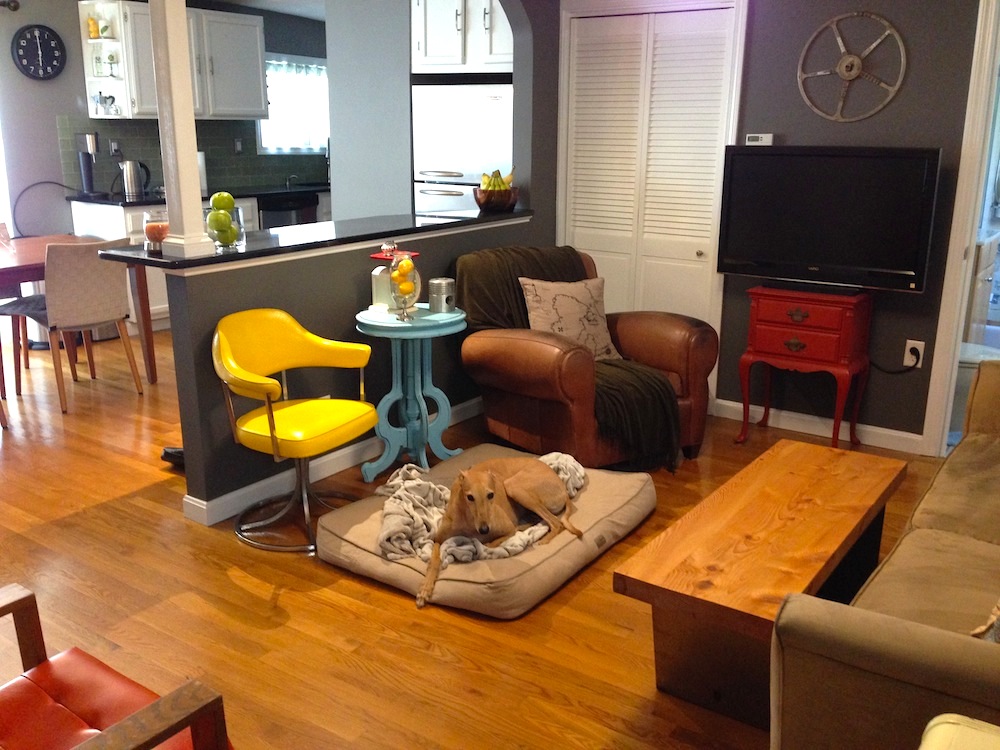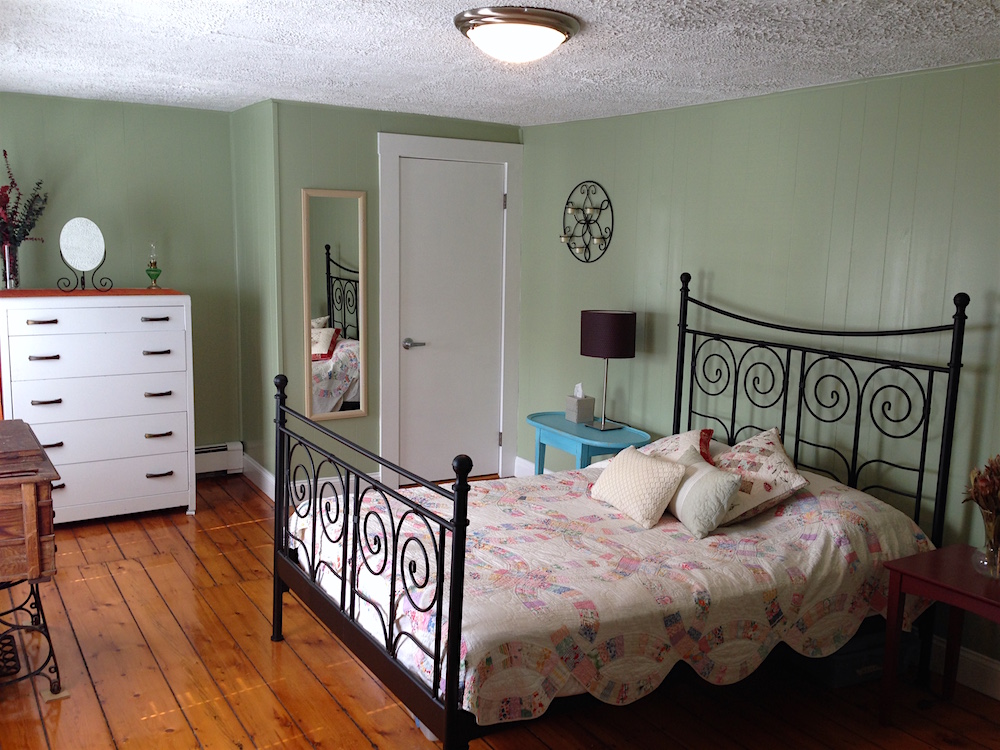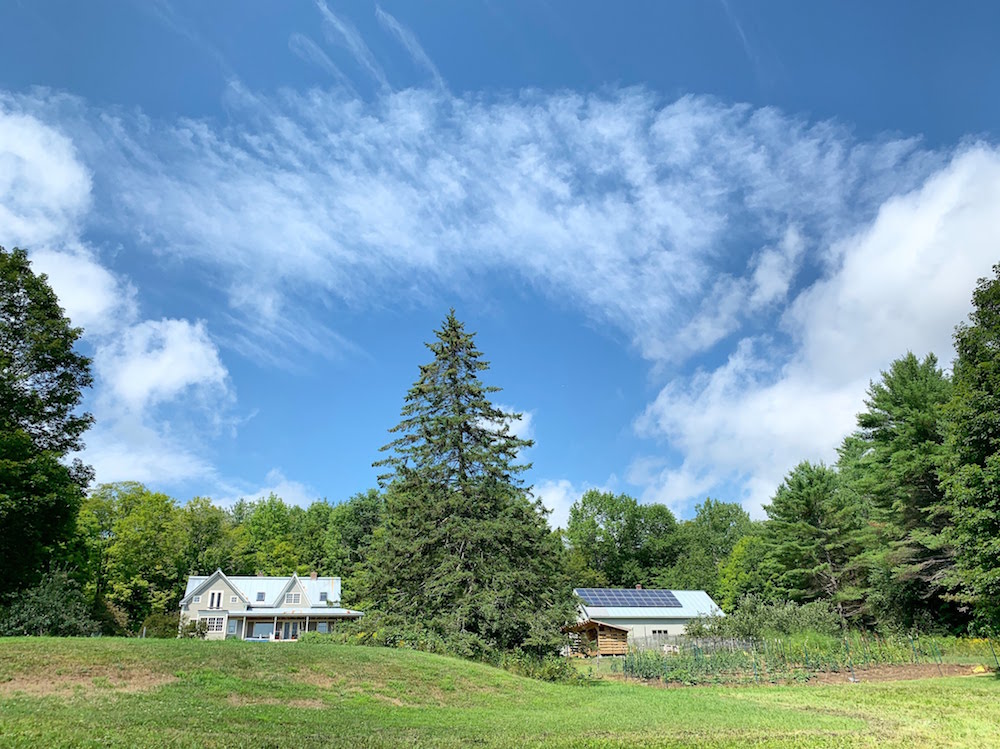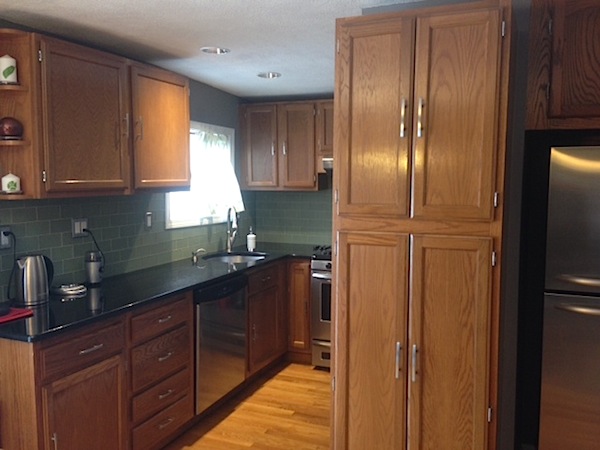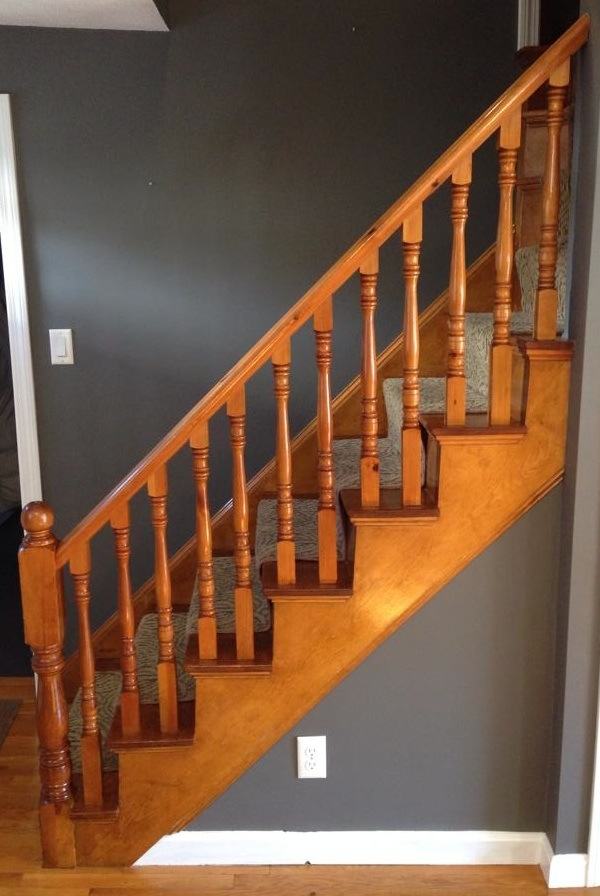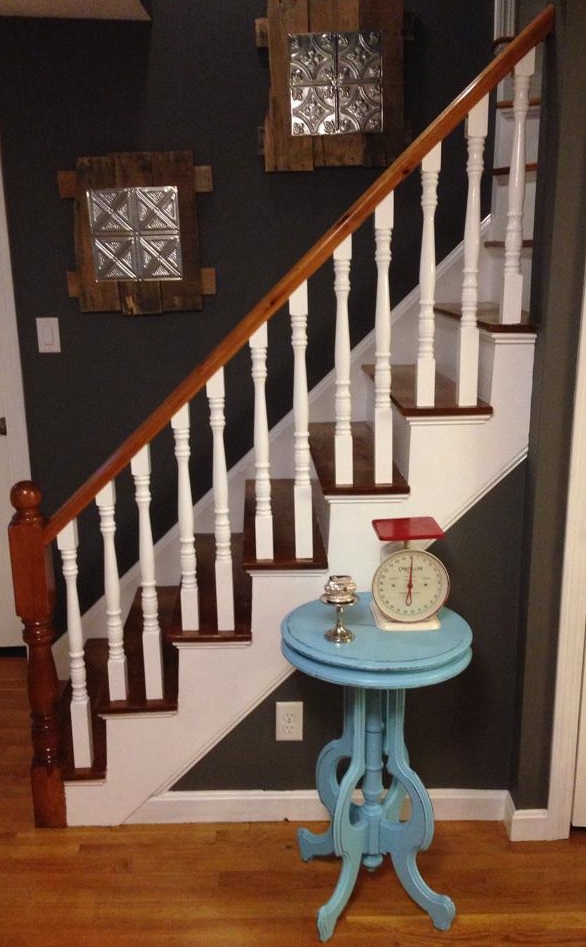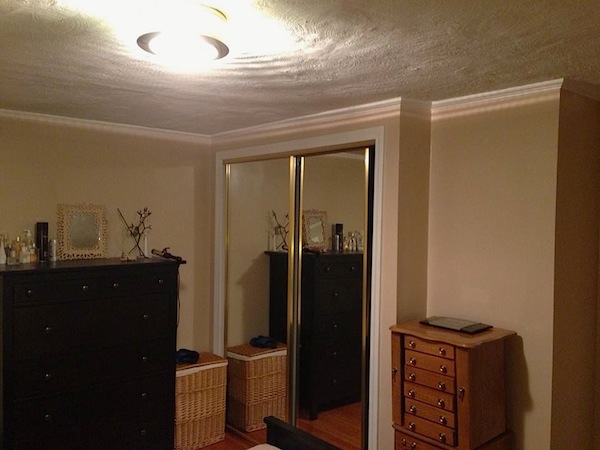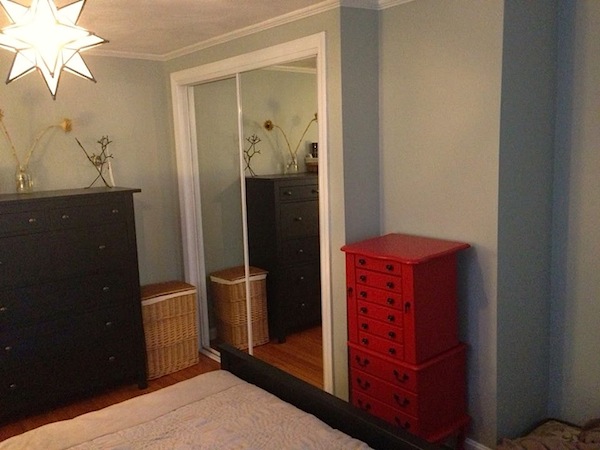Did you know I have a rental property? I do! Many of you have asked me to share an update and so today, I will! I love hearing what you want to read about on Frugalwoods, so please keep the suggestions coming! You can add your ideas for future posts in the comments below or send me an email (liz@frugalwoods.com).
Our First Home = Our Rental Property
We bought our first home in Cambridge, MA (which is Boston-adjacent) back in July 2012 with the short-term plan of living in it and the long-term plan of renting it out. In June 2016 we moved to our Vermont homestead and signed our first tenants for the Cambridge house. Since then, it’s been fully rented with no vacancies and we’ve been able to charge market rate rent each year. We’ve used the same property management company from the outset and consider that expense a very worthwhile trade-off. Every year we analyze the Cambridge housing market and make the determination of continue to rent vs. sell. Every year we’ve decided to continue renting because the property cash flows, it has appreciated tremendously and continues to do so, and owning a rental property is a great diversification of our overall asset portfolio.
We started saving up the downpayment for this house when we were 22 and bought it at age 28 entirely with money we’d earned and saved ourselves. As I’ve discussed previously, there’s a great deal of privilege that goes into home ownership and into our ability to earn and save this money, which I don’t take lightly.
Overview of Our Rental Property
- Location: Cambridge, MA
- Purchased: July 2012
- Began renting it out: June 2016
- Purchase Price: $466,500
- Mortgage: 30-year, fixed rate of 3.6%
| Cambridge Rental Expenses* | Amount Per Month |
| Mortgage and Taxes: | $2,293.14 |
| Insurance (not escrowed through mortgage): | $149.92 |
| Property Manager: | $185.00 |
| Total monthly expenses: | $2,628.06 |
*I don’t include these rental expenses on my monthly expense reports as they’re covered by the rental income.
| Cambridge Rental Income | Amount Per Month |
| Rent: | $4,800 |
| Minus monthly costs: | -$2,628.06 |
| Monthly net revenue: | $2,171.94 |
| Annual net revenue: | $26,063.28 |
Caveats To These Numbers
It’s important to note that these spreadsheets are just a snapshot in time. For example, we haven’t had a major capital expenditure yet, but we will someday. One year, we’ll need to replace the roof or install new flooring or redo the siding, which could easily consume all of our profits for that entire year. Given that, the above financial picture is overly rosy right now, which is why it’s crucial to have a maintenance reserve for your rental property.
Plus, prices typically increase annually:
- Property tax goes up around 4-7% per year
- Insurance usually goes up around 3%
- Property Manager fees can go up
- Rents also typically increase
Additionally, there’s risk involved with owning rental properties and they–like all other investments–aren’t a sure bet. Just because a rental makes money one year doesn’t mean it’ll make money the next. On the other hand, one of the primary reasons we keep this house is its appreciation and its potential for more appreciation, which isn’t accounted for in the above. The house’s excellent appreciation is the defining factor for why we’re renting it out and not selling it. If you’re interested in our comprehensive rent vs. sell analysis, check this out.
Why We Bought This House
We initially bought this home to live in, although we always had the vision of one day turning it into a rental property. Before making an offer on this place, we spent five years casually researching real estate in Cambridge. Five years is kind of a long time to house hunt, but it took us that long to save up a downpayment! Plus, all that research was fun (who doesn’t love snooping around open houses!) and informed our decision in profound ways. After living in the house for four years, we were ready to make our move to rural Vermont and turn this house into a rental.
Thanks to our years of open-housing (we went to at least 270 over the years!!!), we had a clear sense of the Cambridge market and the neighborhoods we wanted to target. To round out our research, we visited a number of properties in surrounding towns (including Arlington, Belmont, Lexington, and Somerville), to confirm our hypothesis that we wanted to buy in Cambridge. All of this research gave us confidence in our purchase and our ability to one day leverage the property as a rental.
If you’re in the early stages of home buying, or if even thinking you might want to buy a home, it can’t hurt to start visiting open houses and giving yourself a thorough education on the market in your area. Wondering how to kick off your own open house exploratory committee? Here’s how we did it: Our 12 Tips For Visiting Open Houses: We’ve Been To Over 270.
Buying A Home With Renting In Mind
When you buy a home to live in with a plan to later rent it out, you’re doing two things at once. You have to consider the property more from an investment perspective and less from an emotional “I love this house” perspective. This isn’t always possible (or advisable), but, if you live in a hot rental market and have aspirations of building a passive income stream, buying a home that can be turned into a rental can be a great option.
One of the main reasons we wanted this property is that it’s a single-family home in a city of mostly apartment and condo complexes. Single-family homes are shockingly rare in Cambridge and so, when we realized this house was all on its own, we were sold. Here’s why:
- Single-family homes in Cambridge are typically worth more (per square foot) than condos or apartments
- Single-family homes are (usually) not part of a Home Owner’s Association, which means there are no monthly HOA fees, no association board to contend with, and no HOA rules governing the ability to rent a unit out
- That last point is crucial since some HOAs restrict or outright prohibit the ability to rent out a unit
Bedrooms Galore
Another reason this house rose to the top of our list is the fact that it has four bedrooms. Additionally, the house has two offices, two full bathrooms, and a semi-finished basement with an in-unit washer and dryer. This number of bedrooms allows us to rent to four tenants, as opposed to one or two, which informs the rental price. Plus, the offices can be used for studying or working-from-home, which has proven to be a great asset for our tenants.
Had we not been focused on the appreciation and rental potential of this house, we probably would’ve purchased a much nicer–but much smaller–condo unit that had been recently renovated.
As it was, this house needed a fair amount of work, and we did our fair share of maintenance and repair over the years. Another salient reason we chose this house is that it was, in many ways, the proverbial cheapest/oldest house in a nice part of town. The real estate axiom of “buy the cheapest house in the best neighborhood” can really pay off when you’re angling for appreciation.
Luck Is A Factor
While it’d be nice to say we were geniuses in buying this house, that’s not true. The truth is that we got lucky. We’d researched the area for five years and tried to do our due diligence, but you never really know how a real estate investment will pan out until much later. So, yes, we just so happened to buy the right house at the right time in the right location. As it turns out, we paid the lowest price per square foot of all habitable units sold in Cambridge that month. That, my friends, is pure luck.
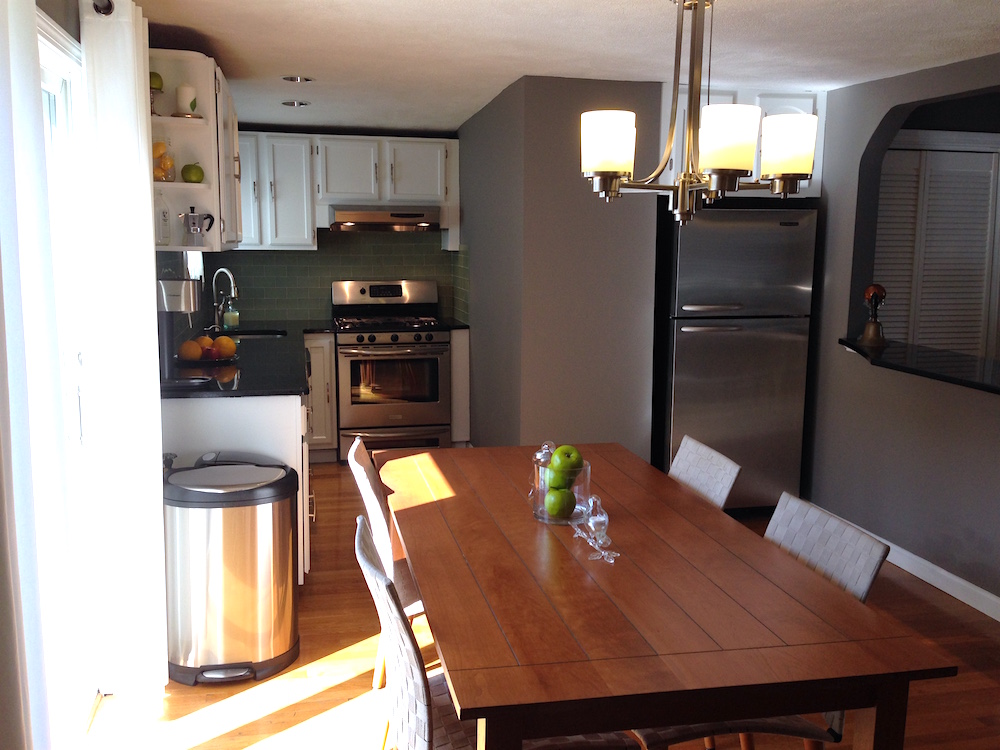
The kitchen in our Cambridge house. We refinished the cabinets ourselves and tore out a wall unit and re-drywalled to give it a more open, modern look
This was also a largely unemotional purchase for us. I wouldn’t say that either of us was deeply “in love” with this house. What I will say is that we both saw the low price per square foot, the ample bedrooms, and the excellent up-and-coming neighborhood and sensed that–of all the places we’d looked at–this was the best deal, the most likely to appreciate, and the easiest to translate into a rental.
We took the exact opposite approach in buying our Vermont home: we didn’t focus on appreciation potential, we have zero plans of ever renting it out, we plan to live here for decades/until we die, we dearly love it, it’s newer construction and just the right size for our family.
We applied the opposite metrics in choosing our Vermont home because we knew it would never become a rental. Plus appreciation is unlikely in this region. I give this example because I think it’s helpful to identify why you’re buying a home and what you hope to gain from it. In the case of our Cambridge property, our goals were: appreciation, rental potential and a longterm revenue-generating asset. In the case of our Vermont property, our goals were: a move-in ready home that we love and plan to live in for a long time.
A Rental Is No Longer Your “Home”
Continuing in the unemotional vein, I want to point out that there’s a psychological factor involved in renting out a house you once lived in. You have to divorce yourself from the house emotionally.
While we grew to love our Cambridge home and made lots of updates and improvements while living in it, I no longer consider it “our home.” I’m not crestfallen that walls need to be repainted or that floors are getting dented. I no longer have an emotional attachment to this house. The property is now a line item on my balance sheet. The house is an investment and I consider it only in terms of the return it delivers.
If you don’t think you’d be able to handle this emotional remove, you may not want to go the route of living in a house and then renting it out. Because no one is going to treat a home the way you want it to be treated. You could make yourself crazy trying to micromanage tenants in the hopes of keeping a home in the pristine condition you kept it in. And beyond being crazy-making, that style of landlording would engender loads of stress and defeat the purpose of generating a (mostly) passive income from a rental.
Always Remember The One Thing That’ll Never Change: LOCATION!
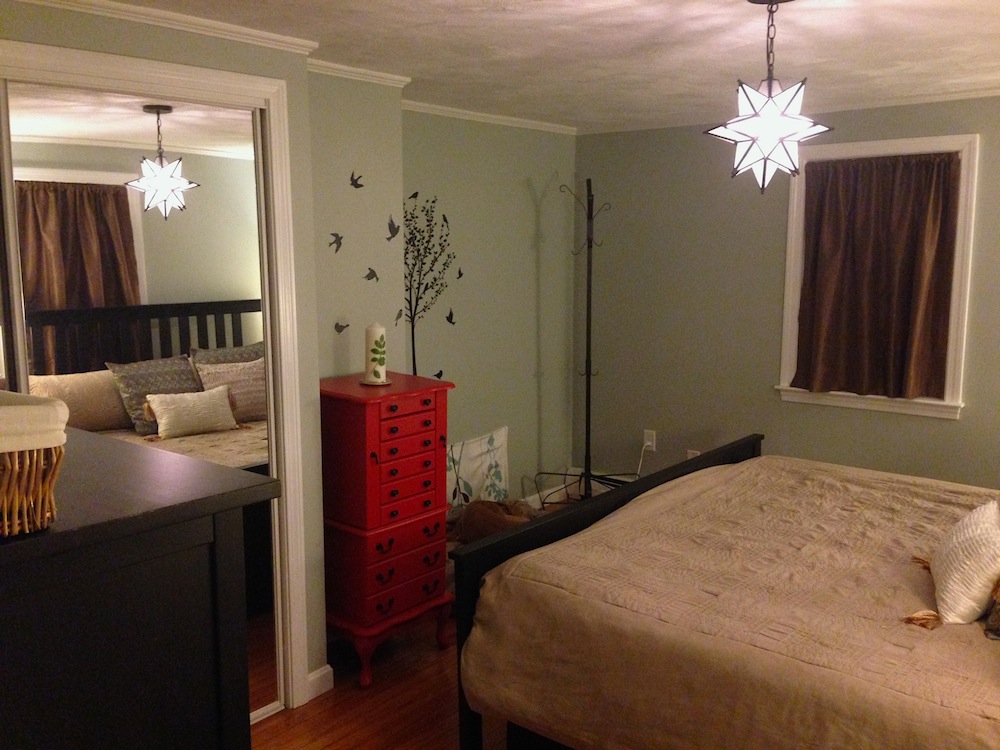
The master bedroom in the Cambridge house. We painted it, refinished the closet doors, and put in a new light fixture to modernize and lighten up the room
Our rental is located in between Harvard University and MIT. Why does this matter to us? Because of the tenant pool. You’ve got to know who you might rent to and, in our case, Harvard and MIT graduate students are (thus far) the people most interested in renting our house.
This works to our advantage because:
- Students are typically in town for a short period of time and thus are more likely to rent than buy;
- Graduate students (in our experience) make excellent tenants;
- Being within walking distance to these two universities increases the value of the property and makes it attractive from a resale perspective (were we to sell it one day).
The house is also close to a number of biotech companies, subway and bus lines, restaurants, night life, coffee shops, parks, breweries, shopping, and pretty much everything else you might want in a city. We bought into a neighborhood that’s still establishing itself and was considered a bit on the fringes of “ideal” Cambridge locations.
However, our research indicated that this neighborhood was on the upswing and that a new subway line was slated to be installed just north of the property (construction is underway now!). Additionally, it’s near the biotech-boom of Cambridge, making it walking distance to the new headquarters of such firms as Novartis, Biogen, Genzyme, Akamai, and many more. This, again, is advantageous from both a tenant pool perspective as well as the overall appreciation of the home. All of these indicators made us predict that home values in the area would rise, and they have. A lot.
Should I Get A Rental Property Too?
This is an impossible question to answer because it’s dependent on so many different factors. If you’re working to asses the viability of becoming a landlord, here are some questions that I think are helpful to consider:
1) Are there any restrictions on renting in your neighborhood/HOA?
- As noted above, if you have a home owner’s association, the very first step is figuring out what (if any) rules they have around renting out units. Do not assume it’s fine just because your neighbor down the hall rents out their unit.
- Some HOAs have restrictions on the number of owner occupied vs. rented units and your neighbor down the hall might be the very last in the quota for rentals.
2) What is the percentage of rental units versus owner-occupied units in the area?
3) What is the potential tenant pool?
- It’s important to consider who might want to rent your property. Is there a built-in, robust tenant population (such as students or traveling professors/business executives/nurses)?
- Is there a demand for higher-end rentals? Or will you be competing with the lowest price rental options?
- What are people willing to pay in monthly rent and how will they treat the property?
- If there’s no sufficient demand for rentals, it’s going to be tough to find high-quality tenants and you might weather a lot of vacancies or gaps in tenant occupancy and/or need to cope with evictions.
4) What’s your projected rate of return?
- To calculate a rough rate of return, figure out:
- What you can expect to rent the property for every month minus all of your expenses, including:
- Mortgage, taxes, and insurance.
-
A maintenance reserve for capital projects. This is money set aside for when you need to replace the roof, redo the siding, install new floors, etc.
- A reserve fund to cover your expenses anytime there’s a vacancy. For example if a tenant breaks their lease and moves out, you can’t find new tenants, etc.
- A property manager, or, the willingness to manage it yourself, which entails a not insignificant amount of time/stress.
- Research if rentals in your area include utilities (electricity, water, etc) or if tenants bear the responsibility. If utilities are typically included, that’s going to further cut into your profits and should be included in the above calculations
- What you can expect to rent the property for every month minus all of your expenses, including:
- If your rate of return is projected to be low, it might not be worth it
You can find most of this information online through city government websites. You can also browse Craigslist and similar for rental listings to get a sense for market rate and how quickly properties are rented out. And, best of all, if you know anyone who serves as a landlord in your area, chat them up! They’ll probably be delighted to share either the horror show of landlording or the remarkable success they’re experiencing. Since so much is contingent upon where you want to purchase a rental, finding a local resource is ideal.
To Hire a Property Manager Or Not To Hire a Property Manager
A property manager is someone you hire to manage your rental property. The extent of a property manager’s involvement varies and you need to figure out how much it’s worth to you to not have to deal with middle-of-the-night phone calls from your tenants about clogged toilets.
We chose to hire a property manager because:
- We don’t live in the same state as our rental property and didn’t relish the thought of a six-hour round-trip drive every time something breaks in the house.
- We found a great property management company with a fixed monthly rate that’s low enough to keep our monthly return quite high.
- Our property manager knows more about managing rentals than we do and we are happy to pay them for their knowledge and expertise.
- Here are just a few of the things they do for us:
- Draft the lease
- Find tenants
- Suggest the annual rental price
- Vet and approve tenants
- Manage the transition between tenants
- Handle all repair, maintenance, and tenant-relations needs, including replacing broken appliances, fixing plumbing issues, coping with a tenant breaking their lease, etc.
- I have to say, it’s lovely to just receive an invoice for a replaced oven and not need to go buy the oven and install it myself. Lovely, I tell you.
If you decide to manage your rental(s) on your own, you’ll need to handle all of these issues yourself and, if you’re not handy, you’ll need to know a reliable plumber, electrician, and contractor who are all willing to do small jobs on a quick turnaround. While you might be willing, for example, to live with a plumbing issue in your own home until you’re able to get a plumber to come out, your tenants will not. They will expect you to fix their problems immediately.
Longterm Appreciation and Portfolio Diversification
In addition to the nice return this property delivers every month, we choose to not sell it because of its longterm appreciation potential. In the ten years we’ve owned it, it has appreciated tremendously and continues to do so.
This longterm appreciation is another reason we wanted to buy a home in this neighborhood of Cambridge.
Since Cambridge has a super tight housing market, a lot of rental units, very little new construction (due to extensive historical building restrictions and limited space), established industries (primarily universities) and emergent industries (primarily biotech), we saw a lot of potential for appreciation.
In addition to the appreciation and the revenue generation, having a rental adds diversity to our portfolio.
Without this property, we’d be more heavily weighted in the stock market and less diversified. This property–with a mortgage–provides a nice balance to our overall portfolio.
Why Not Buy Another Cambridge Property?
Since this rental is working out so well for us, folks have asked why we don’t buy another Cambridge property. The answer is simple: we can’t afford to. Cambridge real estate continues to soar and everything on the market is too expensive for us to generate immediate profit from. In other words, the mortgage would be so expensive that we wouldn’t break even with renting it out.
This is the eternal Catch 22 of buying rental properties in hot markets: since the market is hot, you can charge a lot in rent, but because the market is hot, the purchase prices are astronomical and you’ll probably lose money renting it out initially.
In the case of the house we own, the purchase price was low enough to enable us to rent it out for a profit. That doesn’t mean we don’t still watch the Cambridge market from afar… if something affordable ever pops up, we might scoop it up. But I’m not holding my breath.
In Conclusion
Renting out a property can be the best of times or the worst of times. You need to consider your location, your potential tenant pool, your projected rate of return, the property’s longterm appreciation potential, and your ability to cover unexpected capital expenditures. While a rental can add revenue and diversity to your portfolio, it’s not a risk-free, guaranteed investment.
If you want to discuss rental properties in greater detail–or ask me more questions about my rental–feel free to schedule an hourlong call with me.
Do you have rental properties? Are you interested in exploring the possibility?
Never Miss A Story
Sign up to get new Frugalwoods stories in your email inbox.

